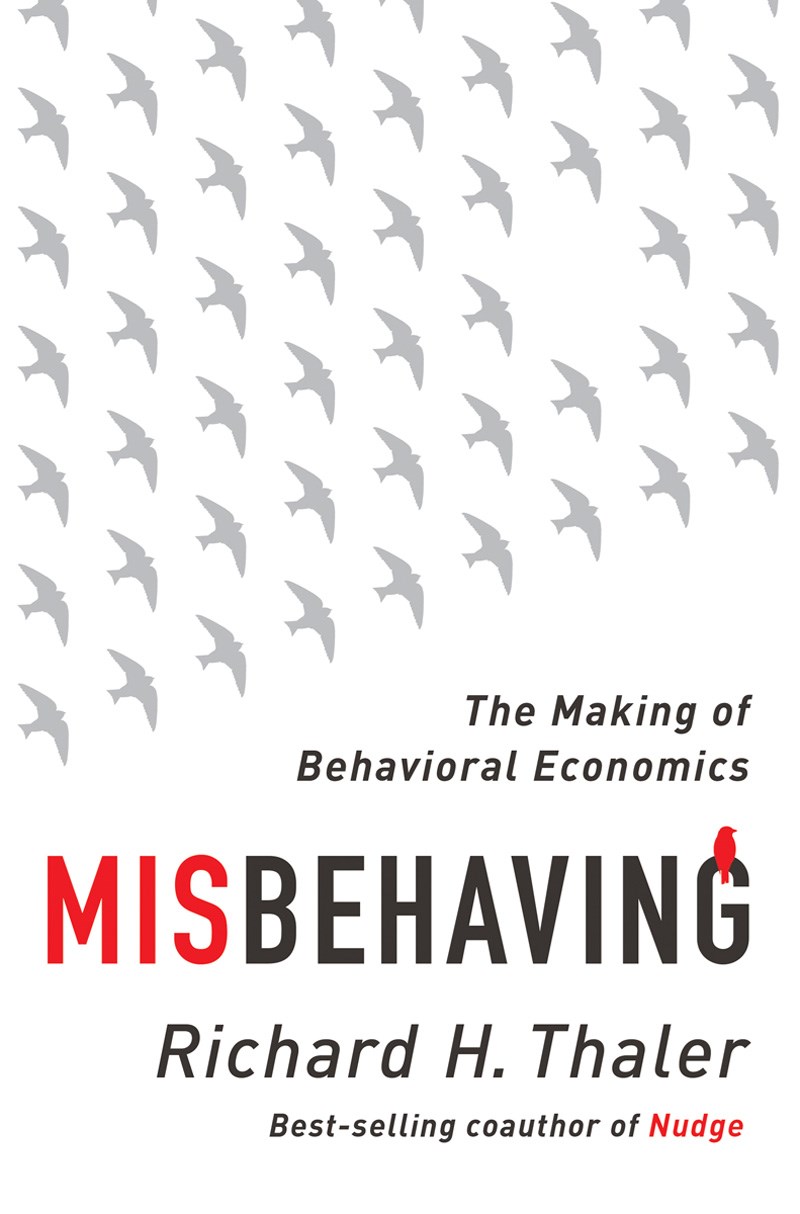Misbehaving: The Making of Behavioral Economics
May 28, 2015
Sally reviews Richard Thaler's new book, Misbehaving: The Making of Behavioral Economics.

Misbehaving: The Making of Behavioral Economics by Richard H. Thaler, WW Norton & Company, 432 pages, $27.95, Hardcover, May 2015, ISBN 9780393080940
It’s a common trope often trotted out to justify why anything from tax breaks to social services support are abused by those people most in need of them. Why, when impoverished people receive a sum of cash, is that cash more often spent on a high-end TV or mobile phone than on more “responsible” things like paying an outstanding bill, visiting a doctor, saving or investing the money for future use. Generally it is people who don’t struggle for funds who are the first to point the finger: if people were just smarter with their money, then they would have more money. Simple, right?
Not according to Robert Thaler, author of the new book Misbehaving: The Making of Behavioral Economics, and more famously known as the co-author of the classic decision-making analysis Nudge with Cass Sustein. Thaler, who is considered one of the originators of the behavioral economics movement, argues that economic theory is all well and good, but economic theory that is based on “inventing abstract models” and expecting humans (or Humans, as he emphasizes) to act in similar idealized fashion limits our understand of the markets as well as the financial actions of people.
Sure, people who don’t have money, who suddenly receive a windfall of cash, may make a decision about that money which may not be considered ideal in the economic sense, but that decision may make a whole lot of sense in terms of human behavior. To expect differently is to create unmeetable, not to mention unreliable, expectations.
It is time to stop making excuses. We need an enriched approach to doing economic research, one that acknowledges the existence and relevance of Humans. The good news is that we do not need to throw away everything we know about how economies and markets work. Theories based on the assumption that everyone is an Econ should not be discarded. They remain useful as starting points for more realistic models.
Essentially, Econs (human-like but fictional creatures called homo economicus by economists) are both time-less and emotion-less. Econs make decisions that are not influenced by what has happened to them in the past or might happen to them in the future. Econs don’t desire; they are impartial. There are few (no?) Humans in the world that can claim the same, and as such, we “misbehave.”
One way to more safely analyze human behavior would be to consider Thaler’s theory that everyone has a planner-doer within. The planner, as is evident, makes a plan. The doer is more impulsive. These two ‘selves’ war within us in the decision making process. While this doesn’t seem to be all that groundbreaking, the point is—as this book serves as a history of behavioral economics—that it was indeed groundbreaking. Opining about self-control as an inner war waging within Humans was quite revolutionary between 1975-88.
As intuitively appealing as this idea was to me, any sort of two-self model had the disadvantage of being considered radical in economics but passé in psychology: not a great combinations. … To most the idea just seemed wacky.
How else do Econs and Humans differ? Thaler illustrates the importance of understanding the difference between the two with this anecdote on fairness: “A hardware store has been selling snow shovels for $15. The morning after a large snowstorm, the store raises the price to $20.” The question asked of participants in this particular poll was simple. Was this price increase acceptable or unfair?
As one might expect the results showed that a majority of folks thinking the price increase was unfair. Econs are taught that “the price will go up enough so that everyone who is willing to pay that price will get one.” So it isn’t surprising that they believed that “Raising the price is the only way to assure that the snow shovels will end up being owned by those who value them most (as measured by their willingness to pay.)” An additional facet to questions of the fairness of a deal would be to imagine that same thing happening at an auction. If that snow shovel were sold at an auction, then most people, Econs and Humans alike, would find it completely fair for the price to go up and up because of demand.
The above is a straight-forward example of how concisely Thaler explains why behavioral economics is so essential to understanding your own business. Wise economic decisions cannot be made in a vacuum without consideration of how people will interact with theory.
If you enjoy reading books such as Freakonomics, you’ll certainly enjoy Thaler’s tales of economic theory being busted in the chops by human psychology, but the book provides more than cocktail party chatter. Organized by time span and including the work and personalities of a number of famous economic researchers—friends and collaborators of Thaler—Misbehaving reads with the heft of the history of behavioral economics and the personality of a good autobiography.




